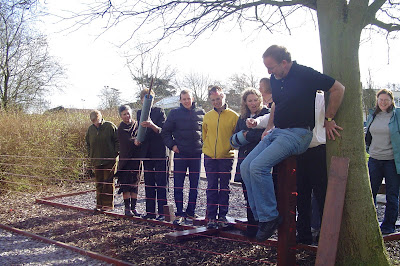In charitytraining.com management training courses, we have been warning of three things for almost a year: the danger of mission drift for those organisations involved in public service delivery; the fact that in our experience, many organisations do not fully understand their costs, let alone the issues of achieving full cost recovery; and the growing influence of the big charities who charitytraining.com director, Tony Gibbs, described as the emerging 4th Sector in his book 'How to make it as a charity manager' over five years ago.
These issues are now very much to the forefront and are becoming hot topics within the sector -
Almost half of charities delivering public services have admitted they are at risk of mission drift, new research conducted by the Charity Commission has found.
Only half of service deliverers responding to the regulator said they could be sure their activities are determined entirely by the charity’s mission rather than by funding priorities.
The report, deemed a “wake up call” for the sector by Commission chair Dame Suzi Leather, also found that only 26 per cent of charities carrying out service delivery actually feel free to make decisions without pressure to conform to their funders’ wishes.
Only 12 per cent of public service deliverers are achieving full cost recovery all of the time, and more than two thirds of funding agreements are for just one year.
The research also found that the majority of larger charities had entered into service delivery. More than 60 per cent of charities with an income above £500,000 deliver public services.
However, just 14 per cent of those not yet delivering public services are actively considering doing so in the next year.
Speaking at the NCVO annual conference, Dame Suzi warned that the sector’s reputation was at risk if mission drift occurred as a result of delivering public services.
“Reputation is at best a fragile thing and must be protected,” she said. “Charities have a distinctiveness they must not lose. We must not see a fourth sector emerge – charities delivering public services which are charities in name only.”
“It’s trustees who face the consequences if mission drift becomes a breach of trust. For their own sake, as well as the sake of their charity, I would urge them to view independence as absolute, non-negotiable and sacrosanct,” she added.
Dame Suzi also lamented the “creeping Tesco-isation” of the largest third sector organisations, saying it was the small and middle income charities that were facing the squeeze in public service delivery. More and more smaller charities would be forced to set up consortia to win valuable contracts in the face of the competition, she said.
“With 88 per cent of charities failing to receive full cost recovery for service delivery, can we really sustain the belief that this can be in the best interests of charities, beneficiaries, or the sector as a whole?” she asked delegates.
Addressing a press conference following Dame Suzi’s speech, Stuart Etherington, chief executive of NCVO, said the fact that only a quarter of charities felt they still had freedom of action was “a complete disaster”.“I would rather see voluntary sector organisations close then lose the reason that they exist in pursuit of funding which takes away their independence,” Etherington said, telling charities it was up to them to decide on what terms they would accept a contract.
Ben Wittenberg, director of policy and research at the Directory of Social Change, said the Charity Commission report backed up what the organisation had been telling the sector for some time.
“This is yet more evidence that the independence of VCOs is placed at risk by restrictive and poorly delivered funding arrangements, but more than that, that a larger threat to the independence of the VCS is emerging,” he said.
But Stephen Bubb, chief executive of Acevo, warned against unnecessary alarmism about the sector’s independence. “It is unrealistic to expect charities to exist in a vacuum, and hardly surprising that funders and donors try to influence what they deliver. What matters is how the charities respond,” he said. “Charities need robust leadership and governance. The best third sector organisations remain true to their founding principles, while evolving to tackle changing social problems.”
NCH chief executive Claire Tickell also dismissed concerns that the sector’s independence was at stake. “Receiving local or state government funding does not mean our independence is compromised. We know the solution to the needs of children, young people and families and it is our responsibility to share them,” she said.
Charity Times Newsalert 21st February 2007





















